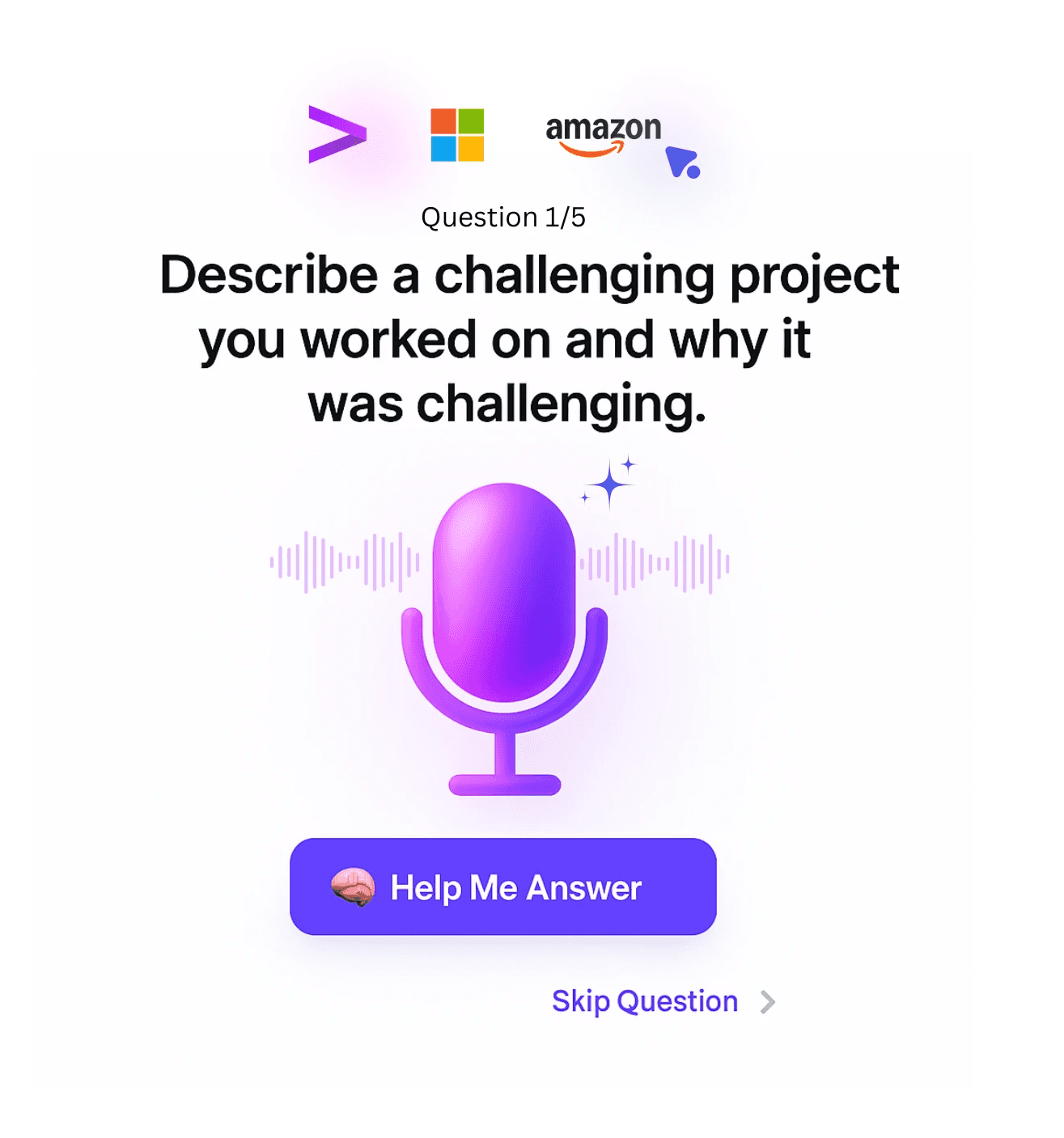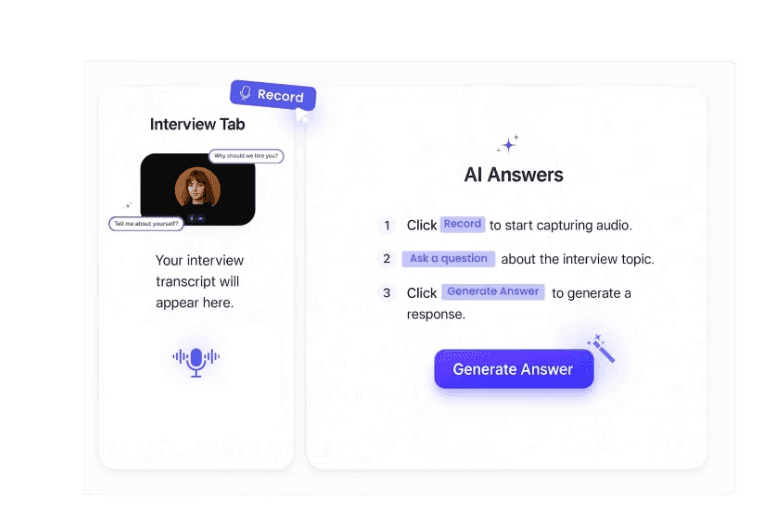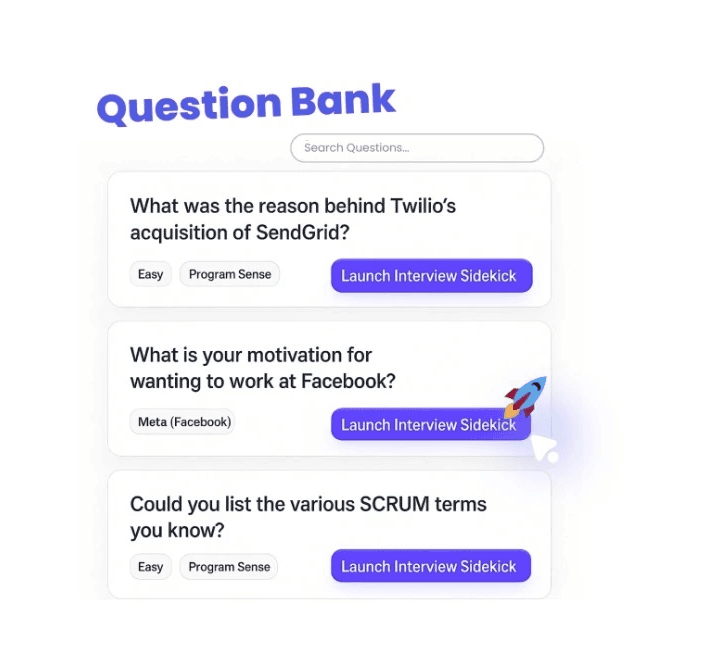How to Decline an Interview
Key Takeaway:
Need to decline a job interview without burning bridges? Whether you're in the U.S., India, Canada, or anywhere else, turning down an interview the right way shows professionalism and emotional intelligence. The key is to be polite, prompt, and clear — thank the employer, briefly explain (if needed), and leave the door open for future roles. Not sure how to phrase it? Tools like Interview Sidekick can help you write thoughtful, personalized decline messages that protect your reputation and keep your network strong.
When Is It Okay to Decline an Interview?
Declining an interview isn’t unprofessional — it’s smart decision-making. Whether you’ve committed elsewhere or spotted misalignment, saying “no” the right way shows maturity, not disrespect.
Here are totally valid reasons to step back from an interview:
1. You’ve Accepted Another Offer
Already accepted a better-fit role? No need to over-explain — a courteous, prompt reply keeps things professional.
Tip: If you're still in final rounds for multiple roles, knowing how to pace communication can help. See how timing plays a role in group interview strategies.
2. The Role Isn’t the Right Fit
After reviewing the job description or speaking with the recruiter, maybe the role isn’t aligned with your goals, industry, or interests. You’re not obligated to continue — just be clear and polite.
3. You Noticed Red Flags
Maybe the job seems chaotic, the communication feels rushed, or the company’s values feel off. Trust your gut — and decline with professionalism.
Related: Our guide on what not to wear to an interview touches on how presentation reflects company culture — and what to watch for.
4. The Salary or Location Isn’t Right
Sometimes the numbers or logistics no longer make sense — especially if remote flexibility vanishes or commute details change post-application. Be honest, and don’t waste anyone’s time.
5. You’re Dealing with Timing or Personal Conflicts
Whether it’s family obligations, travel, or needing a mental break from the job hunt — life comes first. A short, kind message is enough.
6. You’ve Paused Your Job Search
If you're taking a break or reassessing direction, it’s better to decline now than cancel midway. Recruiters appreciate clarity.
“Declining isn’t ghosting — it’s a chance to show your character.”
How to Decline an Interview Politely — Step-by-Step
You don’t need to write a novel. A short, respectful message delivered promptly does more for your professional image than silence ever will. Here's how to turn down an interview without burning bridges:

1. Respond Promptly (Ideally Within 24–48 Hours)
Timing matters. The longer you wait, the more it disrupts the hiring process. A fast, thoughtful reply shows respect — and keeps your reputation intact.
2. Start with Gratitude
Always thank the recruiter or hiring manager for the opportunity, their time, and their interest in your profile. Even if you’re stepping away, you’re acknowledging their effort.
Example:
“Thank you for considering me for the [Job Title] role at [Company Name]…”
3. Keep It Brief — But Clear
You don’t owe a full explanation. A sentence or two is enough. Focus on clarity and professionalism.
Acceptable reasons to share:
You’ve accepted another offer
The timing isn’t right
The role doesn’t align with your goals
4. Leave the Door Open (If You Want To)
If you'd like to be considered for future opportunities, say so. It softens the decline and shows you're still engaged in the industry or brand.
Example:
“While this role isn’t the right fit, I’d love to stay in touch for future opportunities.”
5. Sign Off Professionally
A polite closing can leave a lasting impression — even if this wasn’t the right opportunity.
Examples:
Best regards
Warm wishes
Sincerely
All the best
Tip: If you're turning down an interview because the company vibe didn’t feel right, trust your instincts. We explore cultural fit and first impressions deeply in our What Not to Wear to an Interview guide — because attire and attitude go hand in hand.
Email Templates — How to Decline a Job Interview Politely
Crafting the right message can feel tricky — but with a solid structure and sincere tone, you’ll protect your reputation and close the loop with class. Below are plug-and-play templates for different scenarios:
Template 1: You’ve Accepted Another Offer
Subject: Interview Update – [Your Name]
Hi [Recruiter’s Name],
Thank you so much for the opportunity to interview for the [Job Title] role at [Company Name]. I appreciate your time and consideration.
After careful thought, I’ve decided to move forward with another offer that’s a better fit for my current career goals.
I’m grateful for your interest and hope we can cross paths again in the future.
Best regards,
[Your Name]
Template 2: Personal or Timing Conflict
Subject: Interview Scheduling – [Your Name]
Hello [Recruiter’s Name],
I want to thank you for reaching out and considering me for the [Job Title] position. I’m currently dealing with some personal commitments that would prevent me from giving this opportunity the focus it deserves.
I hope we can reconnect at a later time if the timing aligns better.
Sincerely,
[Your Name]
Template 3: Role Doesn’t Align
Subject: Re: Interview Invitation – [Your Name]
Hi [Recruiter’s Name],
I truly appreciate your interest in my background and the invitation to interview. After reviewing the role in more detail, I’ve decided it’s not the right fit for me at this time.
I’m thankful for the opportunity and hope you find the right candidate for the team.
Best wishes,
[Your Name]
Template 4: Keeping the Door Open for Future Roles
Subject: Interview Opportunity – [Your Name]
Dear [Recruiter’s Name],
Thank you for reaching out about the [Job Title] position. While I’ve decided not to proceed with this particular opportunity, I’m genuinely interested in [Company Name] and would love to stay connected for future roles that align more closely with my background.
I appreciate your time and consideration.
Warm regards,
[Your Name]
Need help tailoring your tone?
Use the AI-Powered Answer Assistant to draft custom outreach emails that reflect your voice and situation.
Mistakes to Avoid When Declining an Interview
Saying no doesn’t have to be awkward — unless you say it the wrong way. These are the most common missteps candidates make when turning down an interview, and how to avoid them:

1. Ghosting the Recruiter
Silence is not a strategy. Failing to respond sends the wrong message about your professionalism — and may burn bridges for future roles.
Fix it: Always reply, even if it’s a simple thank-you and a decline. Respect is remembered.
2. Over-Apologizing
You’re not doing anything wrong by saying no. Avoid long-winded apologies or sounding unsure of your decision.
Fix it: Be kind but confident. You’re allowed to prioritize your own goals and timing.
3. Being Too Vague or Dishonest
Saying “something came up” without clarity can seem like a brush-off. Recruiters appreciate transparency — to a point.
Fix it: Offer a brief but sincere reason when possible (e.g., accepted another offer, role not aligned).
4. Burning Bridges with Tone or Neglect
A snappy email or abrupt withdrawal with no thanks or closure can make a lasting negative impression.
Fix it: Always show appreciation for their time. Leave the conversation better than you found it.
5. Copy-Pasting a Generic Message
Sending the same one-liner to every recruiter? That’s noticeable — and forgettable.
Fix it: Personalize each decline just slightly — mention the company name or job title at minimum.
Pro Tip: A well-written decline shows you’re respectful, self-aware, and thoughtful — all traits companies value, even if you’re not joining them now.
How to Cancel or Reschedule an Interview Gracefully
Sometimes it’s not a “no” — it’s a “not right now.” Whether you’re facing a sudden conflict or just need more prep time, how you communicate makes all the difference.
Here’s how to cancel or reschedule an interview without damaging your credibility:
1. Give As Much Notice As Possible
Canceling 30 minutes before? That’s a red flag. But reaching out 24–48 hours in advance is understandable — and appreciated.
Tip: Even a brief heads-up buys goodwill. Don’t ghost and hope it goes unnoticed.
2. Be Transparent but Tactful
You don’t need to overshare. Keep your reason clear, respectful, and relevant (e.g., scheduling conflict, unexpected personal matter, or workload issue).
Example:
“Unfortunately, I have a scheduling conflict that I wasn’t able to resolve. I truly appreciate the opportunity and would love to reschedule if that’s still possible.”
3. Offer Specific Reschedule Options
Instead of “Can we do it another time?”, suggest a concrete window — this makes it easier for recruiters to lock it in and shows initiative.
Better:
“Would Thursday morning or Friday after 2 PM work for you? I’m flexible within that range.”
4. Use the Right Tone
Be polite, proactive, and appreciative. Avoid making it sound like a favor — even if you’re the one doing the declining or rescheduling.
5. Know When to Reschedule vs. Decline
If you're simply overwhelmed this week? Reschedule.
If the role no longer aligns with your direction or values? It’s better to decline now than cancel twice.
Related Insight: If the reason you’re rescheduling is because you’re uncertain about the job fit, it might help to review our breakdown of how group interviews test your priorities and decision-making.
Real Stories — Interview Decline Disasters (and Wins) from Reddit & Quora
How you handle declining, canceling, or ghosting an interview can impact your reputation—positively or negatively. These real-world examples highlight why every interaction matters:
Reddit: Ghosting Can Actually Backfire
On r/ITCareerQuestions, one user warned:
“If you ghost him abruptly … he absolutely will [blacklist you].” reddit.com+2inc.com+2reddit.com+2reddit.com+3reddit.com+3reddit.com+3
Lesson: Even if there's no formal blacklist, ghosting recruiters can lead to long-term consequences within agencies.
Reddit: Companies Are Calling Out Ghosting
On r/recruitinghell, community members debated the impact of silence:
“There is no recruiter blacklist … but ghosting … is really rude and unprofessional.” reddit.com+7reddit.com+7reddit.com+7
Lesson: Ghosting is widely seen as disrespectful—even if it doesn't technically block you from future opportunities.
Reddit: Recruiters Say They’ll Ban Repeat Offenders
From r/linkedin, one candidate shared:
“For Recruiters: I have a ‘no ghosting’ policy. If you ghost me, I blacklist you and the company that you represent.” reddit.com+9reddit.com+9reddit.com+9
Lesson: Some recruiters do deactivate candidates and even entire companies after ghosting — so silence can directly hurt your access.
Quora: A Respectful Decline Led to a Better Job Offer
On Quora, one user shared:
“I thanked the hiring manager … They appreciated the message and reached out again later with a higher‑level role I was actually excited about.”
Lesson: A well-crafted decline keeps doors open—and can result in better opportunities later on.
FAQs
How do you politely decline an interview?
Respond quickly (within 24–48 hours), thank the recruiter for the opportunity, and briefly explain your decision. Keep your tone professional and, if relevant, express interest in staying connected for future roles.
How do you gracefully cancel an interview?
Give as much notice as possible, ideally at least 24 hours in advance. Be respectful, share a brief reason (like scheduling conflicts or a changed career direction), and offer to reschedule if you're still interested in the company.
How do I politely withdraw from an interview?
Write a concise, respectful email that acknowledges the opportunity and expresses gratitude. Avoid over-apologizing. One or two clear sentences are enough to withdraw professionally.
How do you decline an interview without burning bridges?
Use a warm tone, say thank you, and be honest but diplomatic. If the role isn’t a fit, say so. If you’ve accepted another offer, let them know. Professional courtesy goes a long way.
How do you politely say no in an interview?
If you're mid-process but no longer interested, thank the interviewer and share a respectful reason for stepping back. You don’t need to go into detail — just be clear and appreciative.
Can I decline because of salary or location?
Yes — it's completely fair to decline if compensation, benefits, location, or flexibility no longer align with your priorities. Say so respectfully and thank them for the opportunity.
Is it okay to decline an interview due to personal reasons?
Absolutely. You don’t have to disclose personal issues in detail. A simple message noting the timing isn’t right or that you’re currently unavailable is sufficient.
Does declining an interview hurt future chances?
Not if done professionally. In fact, many hiring managers appreciate candidates who are transparent and respectful — and may consider you for future roles.
Which company interview is easy to decline without guilt?
No company is "easy" to reject — every decision deserves courtesy. But declining high-volume roles in retail or call centers typically has fewer long-term consequences than niche or executive roles.
Conclusion
Turning down an interview doesn’t make you rude — it makes you self-aware. Whether it’s a timing issue, a misaligned role, or a personal decision, what matters most is how you communicate your “no.”
A thoughtful, timely message:
Shows respect for the recruiter’s time
Keeps your reputation intact
Leaves the door open for future roles
In a world where ghosting has become common, choosing to respond with professionalism instantly sets you apart. Be brief, be kind, and be clear — that’s how you say no without ever closing a door.









